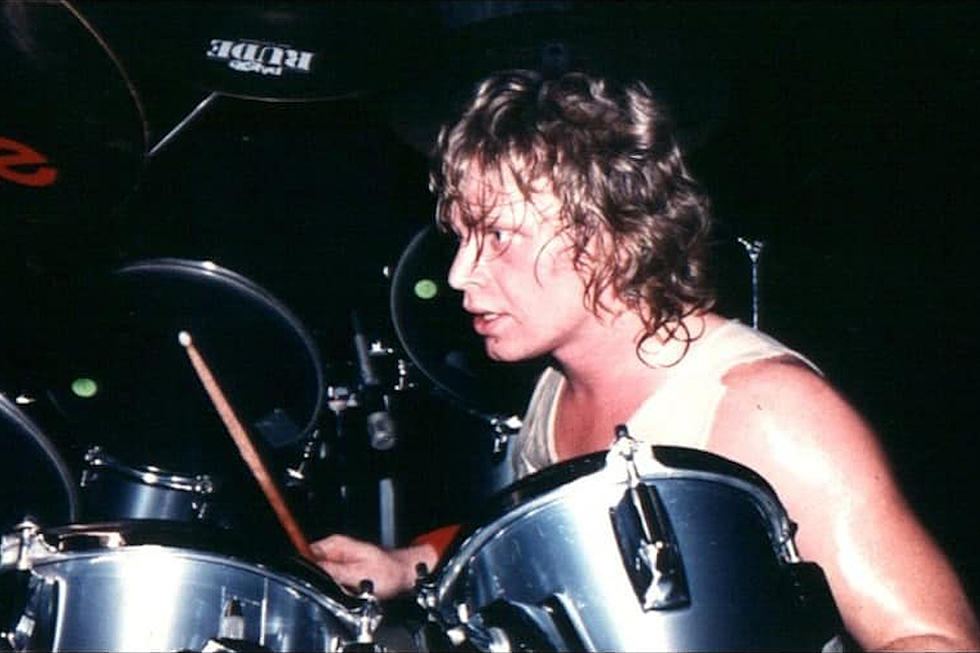
Revisiting Megadeth’s Classic ‘Peace Sells … But Who’s Buying?’
Megadeth established themselves as contenders for Metallica's thrash metal throne with their second album, Peace Sells ... but Who's Buying? when it arrived on Sept. 19, 1986. And it was a throne that leader Dave Mustaine had a legitimate claim to.
But first they had to overcome Mustaine's ouster from Metallica, way back in 1983, and Megadeth's patchy debut, 1985's Killing Is My Business ... and Business Is Good, which suffered from an inadequate recording budget, and even the band's personal demons with drugs and alcohol.
This time, things would be different ... for the most part.
For starters, Megadeth were taking the leap from an independent to a major record label. As Mustaine recounted in his autobiography, Mustaine, "Megadeth had a reputation for putting on blistering live performances and ... we became a hot commodity. So hot, in fact, that our contract got sold to Capitol Records, which brought in recording whiz Paul Lani to correct the problems arising from Combat's sloppy engineering and minuscule recording budget."
The question was whether the band would stick together long enough to benefit from these improvements, because by 1986, Megadeth's members had pretty much split into two distinct factions: Mustaine and bassist David Ellefson in this corner, guitarist Chris Poland and drummer Gar Samuelson in the other.
As Mustaine explained in his book, "Ellefson and I lived together, hung out together, handled most of the mundane tasks of making Megadeth a viable creative force. Junior and I pressed flesh with record company executives and publicists. Believe it or not, we were the professional face of the band."
As for Poland and Samuelson, their issues with heavy drugs were becoming such a liability that simply completing Peace Sells became an ordeal. As Mustaine recounted in his biography, "The days took on a comfortable routine: Find Chris and Gar, get them [a heroin fix], deliver them to the studio, get their parts down on tape and get them the hell out of sight."
Watch Megadeth's 'Wake Up Dead' Video
But as Mustaine acknowledged, "I don't mean to suggest that it was all a slog or that there weren't good days. Because there were – lots of them. Even in the studio, half-baked, Megadeth was capable of extraordinary musicianship. The twin guitar attack on "The Conjuring," the guitar harmony line in 'Peace Sells' – these were achieved not only through careful composition, but through camaraderie that comes when a band is really clicking."
The songs they collectively captured for the album consistently showcased some of the highest grade thrash metal the world had heard up to this point. Side one's first cut, "Wake Up Dead," was the very model of hooky efficiency, and its last, "Devil's Island" boasted clear-cut choruses amid spiraling lead runs and galloping riffs. In between, the occult-obsessed "The Conjuring" featured head-spinning virtuosity, while the title track locked into a massive groove that snagged it some MTV airplay and a template for Mustaine's politicized lyrics for years to come.
On side two, the multi-faceted "Good Mourning/Black Friday" went toe-to-toe with Metallica's most mature efforts of the day; "Bad Omen" again put technical execution in the service of ritualistic lyrics; and a cover of the blues standard "I Ain't Superstitious" shocked and awed before the final dynamic acrobatics of album closer "My Last Words."
All in all, Peace Sells was a tour de force – a vindication for Mustaine in his quest to better or at least challenge his former Metallica bandmates. Still, the formula devised by the band's current lineup wouldn't be around for long. The album reached No. 76 on the Billboard chart and eventually went platinum, but the tour to support it was marred by the ongoing substance issues and a growing distance between Megadeth's two internal factions.
As the frontman explained in Mustaine: "As far as [Ellefson and I] were concerned, Gar and Chris were lesser partners. Both of them had joined the group with cynical intentions: They were jazz musicians to the core, hardly enamored of heavy metal, but saw Megadeth as an opportunity to escape the poverty and obscurity that most musicians endure. It was a decision born of practicality, not passion."
Samuelson and Poland fell by the wayside at tour's end, soon to be replaced by another pair of musicians willing to cope with Mustaine's occasionally erratic behavior and taskmaster ways for now. Megadeth's career, as has been documented, would progress like this, with triumph and despair over several albums. But it's arguable whether this delicate balance of personalities, musical violence and proficiency ever produced better results than it did on Peace Sells ... but Who's Buying?
Rockers With Hidden Talents
More From Ultimate Classic Rock









